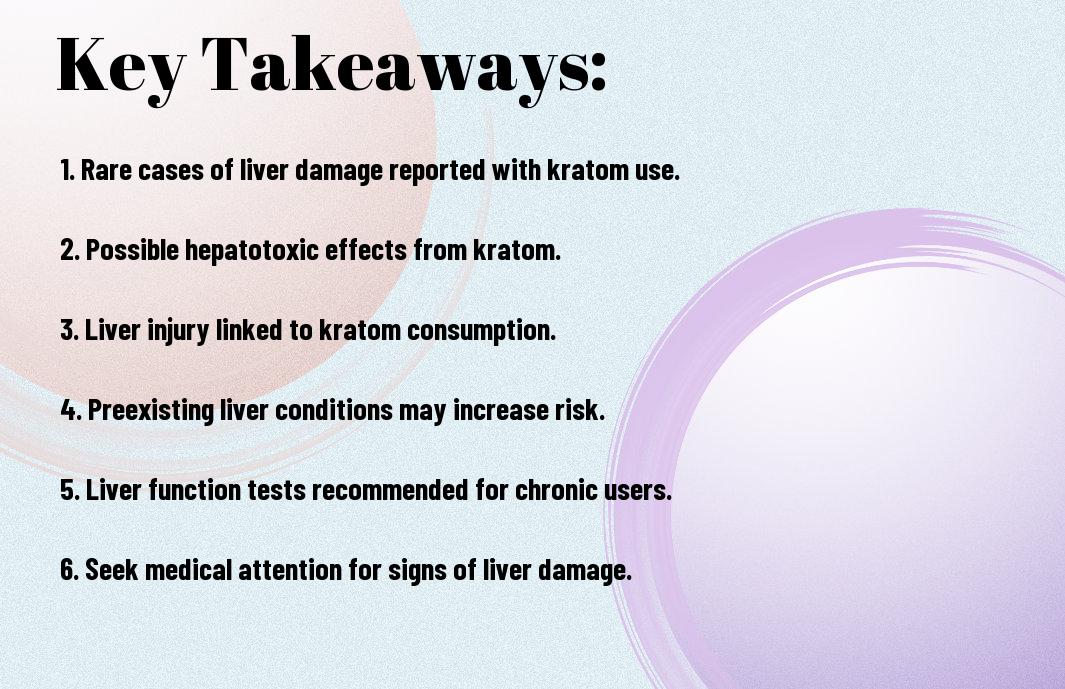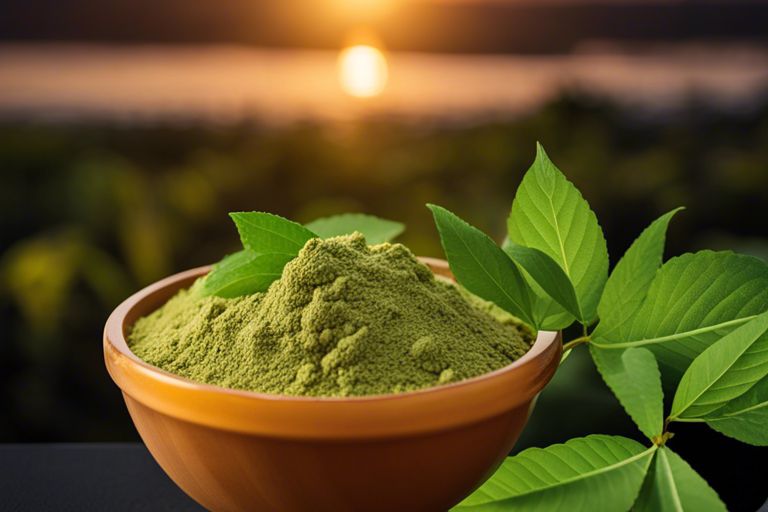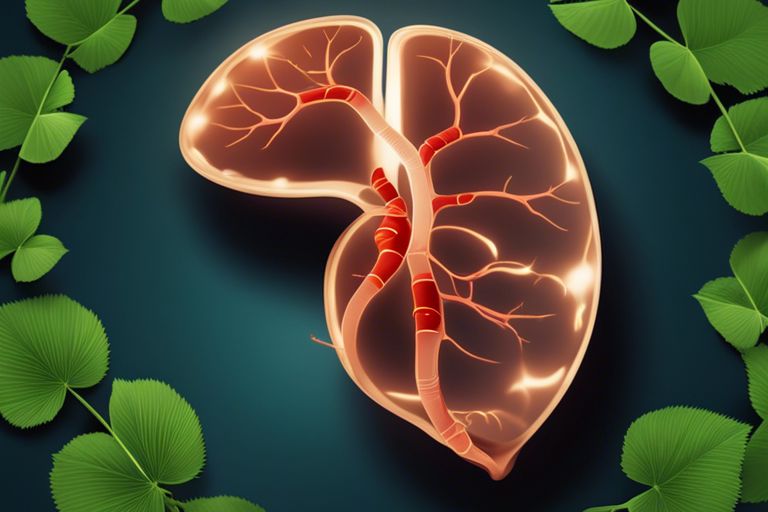There’s ongoing debate about the potential risks of using kratom, a herbal supplement popular for its analgesic and mood-enhancing effects. While kratom has gained traction as a natural remedy, studies suggest a link between kratom consumption and liver toxicity. Understanding the impact on liver health is crucial for individuals considering or currently using kratom. This article examines into the possible connection between kratom and liver damage to provide an informed perspective on the subject.
Key Takeaways:
- Kratom may potentially cause liver damage: Studies have shown a possible link between kratom consumption and liver damage, although more research is needed to establish a definitive connection.
- Individual susceptibility to liver damage: Factors such as the amount and frequency of kratom use, as well as an individual’s health status and genetic predisposition, may play a role in determining the risk of liver damage.
- Monitoring and caution are vital: Users of kratom should be aware of the potential risks to their liver health and should consult with healthcare professionals if they experience any symptoms of liver damage while using kratom.

What is Kratom?
A popular botanical substance, kratom is derived from the leaves of the mitragyna speciosa tree, which is native to Southeast Asia. Known for its stimulant and sedative effects, kratom has been used for centuries in traditional medicine practices.
Origin and History
With origins in countries like Thailand, Malaysia, and Indonesia, kratom has a rich cultural history. In these regions, kratom leaves were chewed or brewed into tea for their stimulant and pain-relieving properties. The use of kratom has also been associated with traditional ceremonies and rituals.
Chemical Composition
Composition
The active compounds in kratom, known as alkaloids, interact with opioid receptors in the brain, producing effects similar to opioids but with milder effects. The two main alkaloids in kratom, mitragynine and 7-hydroxymitragynine, are responsible for its psychotropic properties. However, it’s crucial to note that kratom’s mechanism of action and effects are still not fully understood.

Kratom and the Liver
There’s increasing interest in the potential effects of kratom on the liver, as this herbal supplement gains popularity for its purported benefits. The liver plays a crucial role in metabolizing substances that are ingested, including drugs and supplements like kratom. Understanding how kratom interacts with the liver is vital in evaluating its safety and potential risks.
How Kratom Affects the Liver
One of the primary ways in which kratom may affect the liver is through its metabolism. When kratom is ingested, it is broken down in the liver by enzymes. This process can produce metabolites that may impact liver function. Additionally, there is evidence to suggest that prolonged and high-dose kratom use could potentially strain the liver, leading to adverse effects.
Potential Risks and Side Effects
Kratom has been linked to reports of liver damage and other serious side effects in some individuals. One study reported several cases of liver toxicity associated with the use of kratom supplements. It’s vital to note that while kratom is generally considered safe for most people when taken in moderation, there is a potential risk of liver damage in susceptible individuals or when consumed in high doses over an extended period.
Another factor to consider is the lack of regulation and quality control in the kratom industry. The variability in the composition and purity of kratom products can also contribute to the potential risks of liver damage and other adverse effects. It is crucial for consumers to exercise caution and be aware of the potential risks when using kratom as a supplement.
Reported Cases of Liver Damage
Not many reported cases link kratom use directly to liver damage. However, a few instances have raised concerns about the potential risks associated with kratom consumption. It is imperative to examine these cases to understand the possible effects of kratom on liver health.
Severity of Liver Damage
With the reported cases of liver damage associated with kratom use, the severity can vary. Some individuals may experience mild symptoms that resolve on their own, while others may develop more severe complications requiring medical intervention. It is crucial to monitor any signs of liver damage closely, as severe cases can lead to liver failure, which can be life-threatening.
Common Symptoms
Common symptoms of liver damage linked to kratom use include jaundice, dark urine, abdominal pain, fatigue, and nausea. These symptoms can vary in severity and may indicate underlying liver issues that require immediate attention.
Common symptoms such as jaundice and dark urine are critical indicators of potential liver damage and should not be ignored. If experiencing any of these symptoms while using kratom, it is crucial to seek medical advice promptly to prevent further complications.
Factors Contributing to Liver Damage
Once again, it is vital to understand that several factors can contribute to liver damage when using kratom.
- Dosage and Frequency of Use: Any excessive consumption of kratom or frequent use can put a strain on the liver. Higher doses and prolonged usage may overwhelm the liver’s ability to process kratom alkaloids efficiently, leading to potential damage.
- Interactions with Other Substances: On top of that, kratom’s interactions with other substances can also play a role in liver issues. It is important to be cautious when combining kratom with medications or other substances that could further burden the liver.
Dosage and Frequency of Use
Any excessive consumption of kratom or frequent use can put a strain on the liver. Higher doses and prolonged usage may overwhelm the liver’s ability to process kratom alkaloids efficiently, leading to potential damage. It is crucial to follow recommended dosages and allow for breaks in kratom use to give the liver a chance to recover.
Interactions with Other Substances
On occasion, kratom’s interactions with other substances can exacerbate the risk of liver damage. It is imperative to be cautious when using kratom in conjunction with medications or other substances that might cause liver toxicity.
It is vital to be aware of the potential interactions and their implications for liver health. Always consult with a healthcare professional before using kratom, especially if you are taking medications or have pre-existing liver conditions that could be worsened by kratom use.
Pre-Existing Liver Conditions
An important consideration when assessing the risk of liver damage with kratom is the presence of pre-existing liver conditions. Individuals with compromised liver function are more susceptible to the potential harmful effects of kratom on the liver. It is crucial for individuals with pre-existing liver conditions to exercise caution and potentially avoid the use of kratom to prevent further damage to the liver. After all, the priority should always be maintaining liver health.
Scientific Studies on Kratom and Liver Damage
Many scientific studies have been conducted to investigate the potential link between kratom use and liver damage. These studies have explored the effects of kratom on the liver through human trials and animal studies to better understand the impact of this substance on liver health.
Human Trials and Research Findings
Research on kratom and its potential to cause liver damage in humans is limited. While some case studies have suggested a possible association between kratom use and liver injury, a direct causation has not been definitively established. More comprehensive studies involving larger sample sizes and controlled conditions are needed to draw conclusive results about the relationship between kratom use and liver damage in humans.
Animal Studies and Their Implications
Any research on kratom and liver damage often relies on animal studies to understand the potential mechanisms underlying liver injury. These studies have shown that high doses of kratom can lead to liver toxicity in animals. However, it is necessary to note that animal studies may not always directly translate to human outcomes. Further research is necessary to determine the relevance of these findings to human kratom users.
Understanding the findings from scientific studies on kratom and liver damage is crucial for making informed decisions about its use. While some research suggests a potential link between kratom and liver damage, more studies are needed to confirm these findings and assess the risk factors involved. It is advisable to exercise caution and consult healthcare professionals before using kratom, especially in high doses or for prolonged periods.
Is Diarrhea a Symptom of Kratom-Induced Liver Damage?
Yes, kratom diarrhea side effects can be a symptom of potential liver damage caused by kratom use. It’s important to be aware of any changes in bowel movements when using kratom, as it could be an indication of liver issues. Seeking medical advice is crucial if experiencing this symptom.
Mitigating the Risk of Liver Damage
Despite Kratom Safe? Study Links to Liver Health Issues, there are steps you can take to mitigate the risk of liver damage when using kratom. By following safe dosage guidelines, monitoring your liver health, and avoiding interactions and contraindications, you can help protect your liver while enjoying the benefits of kratom.
Safe Dosage Guidelines
Anytime you consume kratom, it’s crucial to adhere to safe dosage guidelines. Excessive consumption of kratom can put a strain on your liver and lead to potential damage. It’s recommended to start with a low dose and gradually increase it as needed. Keeping your kratom intake at a moderate level is key to reducing the risk of liver issues.
Monitoring Liver Health
With regular use of kratom, it’s vital to monitor your liver health through routine check-ups and blood tests. Regular monitoring can help detect any early signs of liver damage and allow you to take action before the damage progresses. If you experience any unusual symptoms such as jaundice, dark urine, or abdominal pain, seek medical attention immediately.
Safe consumption of kratom includes being proactive about your liver health. Consult with your healthcare provider regularly to ensure that your liver function is optimal while using kratom. By staying informed and vigilant, you can lower the risk of potential liver damage.
Avoiding Interactions and Contraindications
Avoiding interactions and contraindications is another important aspect of protecting your liver while using kratom. Some medications and substances can interact with kratom, leading to adverse effects on the liver. It’s crucial to be aware of any potential interactions and avoid combining kratom with substances that may harm your liver.
Health is wealth, and prioritizing your liver health when consuming kratom is vital for a safe and enjoyable experience. By following safe dosage guidelines, monitoring your liver health, and avoiding interactions and contraindications, you can minimize the risk of liver damage and continue to benefit from the effects of kratom responsibly.
To wrap up
Hence, while evidence suggests a potential association between kratom use and liver damage, further research is needed to fully understand the extent of this correlation. It is crucial for individuals consuming kratom to be aware of the potential risks and to use it in moderation. As with any substance, consulting with a healthcare professional before use is advisable to ensure safety and to monitor for any signs of liver damage.
FAQ
Q: What is kratom?
A: Kratom is a tropical tree native to Southeast Asia, known for its leaves that contain compounds with mind-altering effects.
Q: Can kratom cause liver damage?
A: There have been cases where kratom use has been linked to liver damage, although the exact mechanisms are not yet fully understood.
Q: What are the symptoms of kratom-induced liver damage?
A: Symptoms may include abdominal pain, dark urine, jaundice, fatigue, and nausea. It is important to seek medical attention if experiencing any of these symptoms.
Q: How can kratom-induced liver damage be prevented?
A: To reduce the risk of liver damage, it is advisable to use kratom in moderation, avoid combining it with other substances that may stress the liver, and purchase kratom from reputable sources.
Q: Is kratom legal and regulated?
A: The legality and regulation of kratom vary by country and region. It is vital to research and understand the laws pertaining to kratom in your area before using it.









